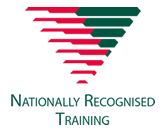Developing confident, empathetic, supportive leaders for individuals and teams in uncertain times.
This qualification reflects the role of individuals working as developing and emerging leaders and managers in a range of enterprise and industry contexts.
As well as assuming responsibility for their own performance, individuals at this level are likely to provide leadership, guidance and support to others. They may also have some responsibility for organising and monitoring the output of teams. They apply solutions to a defined range of predictable and unpredictable problems and analyse and evaluate information from a variety of sources.
Set against the backdrop of modern day Australia and drawing on a variety of enterprise and industry contexts, we introduce learners to a broad range of knowledge and skills to refresh and accredit their management skills.
This course has a broad focus on emerging and traditional leadership topics, including emotional intelligence, the value of diversity, wellbeing support, coaching and mentoring, operational requirements, and workplace tools for leading difficult conversations, among other unique challenges of a post-pandemic work environment.


